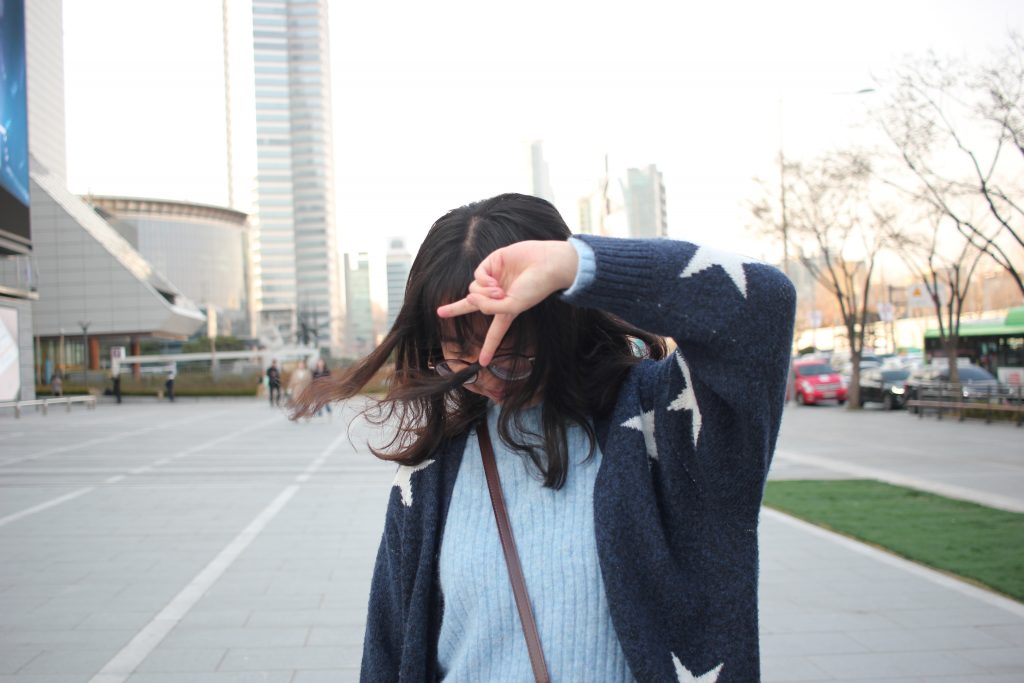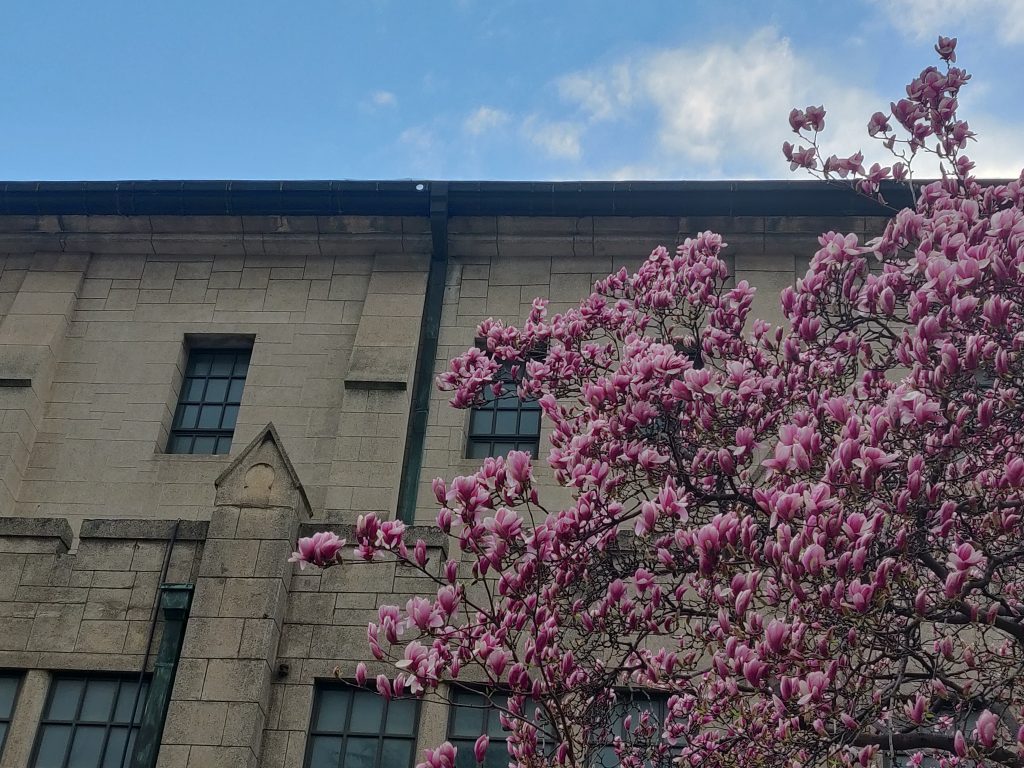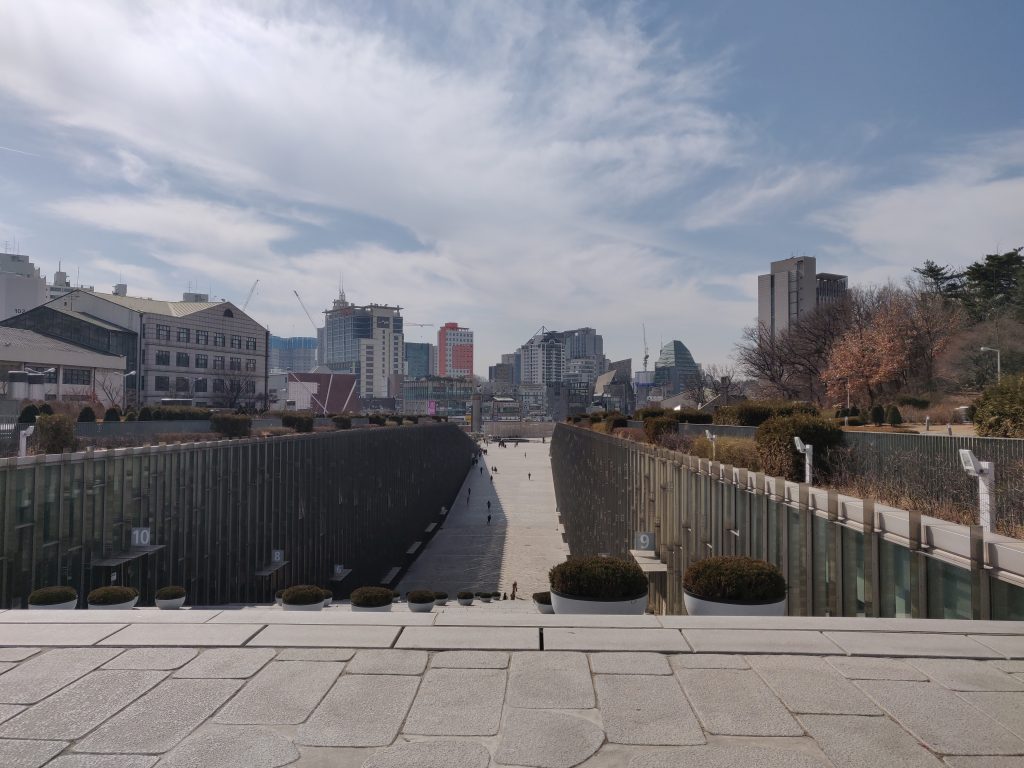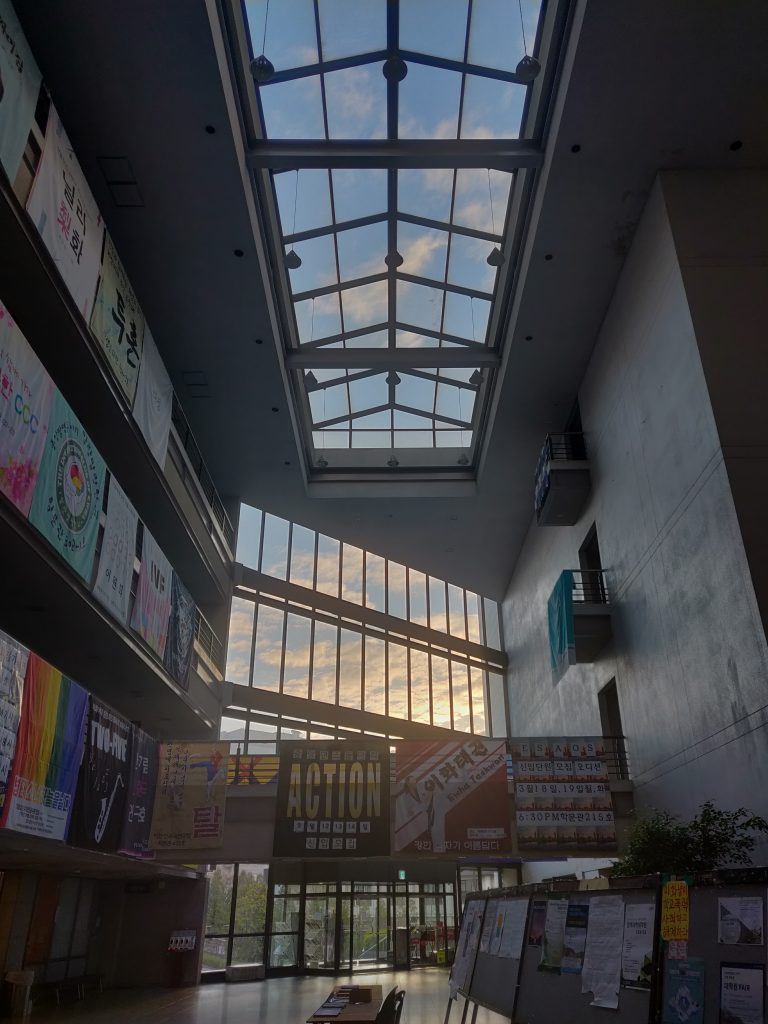Southern University of Science and Technology (SUSTech) has worked hard to create an environmental with global vision. With over 90% of our faculty having worked or studied outside of mainland China, SUSTech is infused with an international outlook that flows through to our students. With this in mind, the Global Engagement Office has worked hard to develop plenty of programs for students to go abroad to study. More than 60 undergraduate students were overseas when the call went out for information about their time in another country, and this is their story.

Xuan Chen, School of Environmental Science and Engineering
Seoul: South Korea – Ewha Womans University
Xuan Chen is a future environmental scientist from Guilin, Guangxi Province. The province is famed for its natural beauty, with both Guilin and nearby Yangshuo attracting many tourists year round. Maintaining a pristine environment is not the only reason for Xuan Chen to head into environmental science.
Since she was a high school student, she has had an implicit desire to do research. Despite the misgivings of her desk mates at school, her pure and unfettered desire were to conduct scientific research. SUSTech provided a platform for her to jump feet first into research, with small classes, English lectures and more opportunities for research from early stages of her time on campus.
When Xuan Chen came to SUSTech, she was taken under the wing of Professor Zheng Chunmiao as her tutor. It is undoubtedly true that the Chair Professor and Founding Dean of the School of Environmental Science and Engineering has had a big impact on Xuan Chen, given the impact that Zheng Chunmiao was one of the first students to travel abroad when China started opening up in the 1980s. He got the opportunity to study under Mary Pikul Anderson at the University of Wisconsin-Madison, where he got his Ph.D.
When we spoke to Xuan Chen, she freely admitted such, saying that Zheng Chunmiao encouraged her to travel abroad to further her studies, as did the School of Environmental Science and Engineering. Professor Zheng Chunmiao took her to Washington DC in her freshmen year, which increased her desire to be exposed to other academic cultures. What is truly interesting to us was her decision to travel to Seoul to a unique university, Ewha Womans University.

Why Ewha Womans University?
Ewha Womans University was founded on 31 May 1886 by American missionary Mary F. Scranton, who originally taught classes out of her home for Korean girls, and started with one student. The name Ewha, which translates to Pear Blossoms, was bestowed upon the school by Emperor Gojong in 1887. The school started providing college-level courses in 1910 and professional-level courses for women in 1925, elevating the school to the level of college. Following the liberation of Korea from Japan at the end of World War II, the college received government permission to become a university, becoming the first South Korean university officially recognized as such.
It is a unique campus in that only female students are able to enroll from within South Korea, while allowing both male and female international students. Xuan Chen told us that she feels so comfortable on campus that she barely notices that it is effectively a female-only campus.

Xuan Chen explained that she had met two graduates from Ewha, and had found both of them highly inspirational. She had interned for Professor Su-jong Jeong (now at Seoul National University), who research lab has provided her with the experience she needed to find her future career direction. However, Xuan Chen was struggling to find a suitable role model in the form of a female climate change scientist, particularly one in East Asia.
Xuan Chen’s first interaction with a student from Ewha was during 2016, when Professor Su-jong Seong invited his former student to SUSTech. They met and talked about their similar undergraduate experiences, while the Ewha student reflected on how she started her research at Ewha. Xuan Chen could sense the pride imbued in the student by Ewha Womans University, as she was told about the increased confidence her new friend gained as a female researcher and scientist.
Once she started interning with Su-jong Jeong, she met a senior researcher, whose wife had graduated from Ewha. His wife was very forthcoming in recommending that Xuan Chen go to Ewha for further studies. She specifically pointed out the large international visiting and exchange programs on offer at Ewha. Given the deep immersion Xuan Chen received into Korean culture and language by being surrounded by South Korean researchers in Su-jong Jeong’s laboratory, she developed a significant interest in their culture and language.
When she started talking about going overseas to continue her studies, she received significant support from Professor Zheng Chunmiao, as well as the School of Environmental Science and Engineering. The School has long had a policy of encouraging its students to “spreading their wings” and experiencing a diverse range of academic environments, in order to maximize their understanding of environmental science and engineering. They have also advanced the idea of students learning from other fields, to create interdisciplinary leaders within the School.

Her experience at Ewha Womans University so far
Xuan Chen spoke to us via phone on a dry day in Seoul. She is currently taking classes in climate and energy engineering, Korean, English literature and western philosophy. While none of these classes relate to her major of Environmental Science and Engineering, she believes that they will link closely with her future studies in graduate school and beyond.
Xuan Chen wants to specifically specialize in the effect of human activities on urban climate change, and studying at Ewha Womans University has given her the opportunity to find some new classes and new research opportunities to learn in these areas. She noted that most of her classes are taught in English (except her Korean class). As far as Xuan Chen can tell, half of the classes at Ewha are taught in Korean, and the other half are taught in English.

Reflecting on the biggest differences between Chinese and Korean culture, Xuan Chen commented that Korean people are very polite, bowing a lot, which she has found a little stressful. However, she does find time to relax with friends on the beautiful Ewha campus. There is a stereotype that East Asians work hard and play hard, and it was something that she commented on, with her classmates studying hard and playing hard! She did note that she spends at least one third of her free time working on her research and studying, but still finds time to relax.
Although Xuan Chen has enjoyed the different food options in Seoul, she does miss food that she is used to in China. She is certainly not missing too much of the weather, with Seoul turning to spring and the flowers blooming.
Xuan Chen shares a dormitory with 1 other international student. They have their own bathroom, but there are other dormitory set-ups on campus.
Her final message for her countrymen and women
When you study abroad, you shouldn’t focus too much on what you learn in class. It’s more important to learn about the culture and the people you are surrounded by. You can go out to see the differences from the new country and the new places. After you go out and about, you will see why SUSTech is making unique progress in the world, and how it can improve to become a world-class university.
One of the basic missions of the Global Engagement Office (GEO) is to ‘internationalize’ the student experience through providing opportunities for students to immerse themselves in other cultures, develop their cross-cultural competencies, and raise awareness of the complexities of global issues. It is a principle of the university’s vision to be a global university; an element of this understanding is to provide SUSTech students with the opportunity to study abroad for a certain period (from several weeks – a summer program – to one year).
So far, the Global Engagement Office has established cooperation with major institutions from all over the world and provides nearly 50 different study abroad programs to our undergraduates, with a variety of program options, ranging from short-term programs such as summer schools and research internships, semester programs such as visiting student programs and exchange programs, to joint-degree programs such as “3+2”, “3+1+1” and more.
If students would like to learn more about current programs and info sessions managed by GEO, please visit our website (https://geo.sustc.edu.cn/) and are invited to follow the GEO WeChat public account (search “南科大国际合作部”). Students can also send emails to geo_students@sustech.edu.cn for any enquiries regarding studying abroad programs.
Proofread ByGlobal Engagement Office
Photo ByXuan Chen